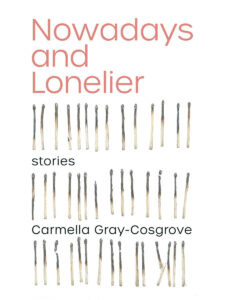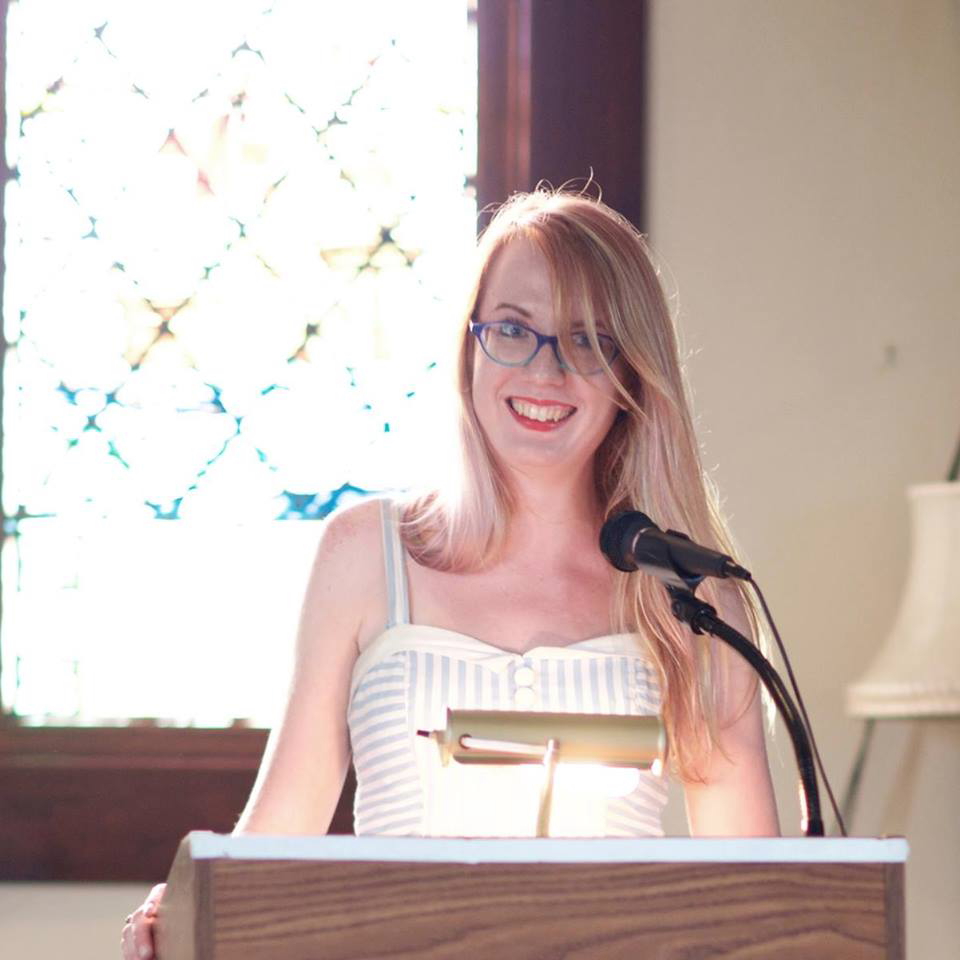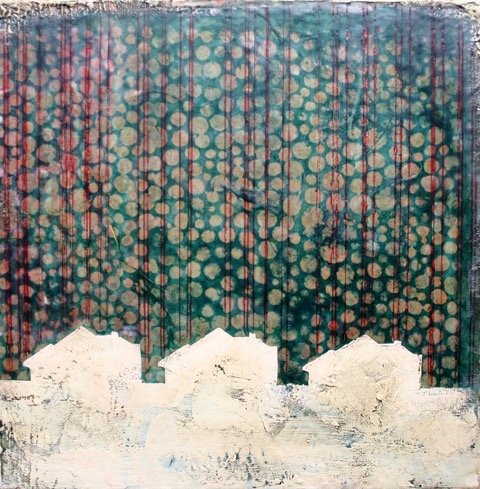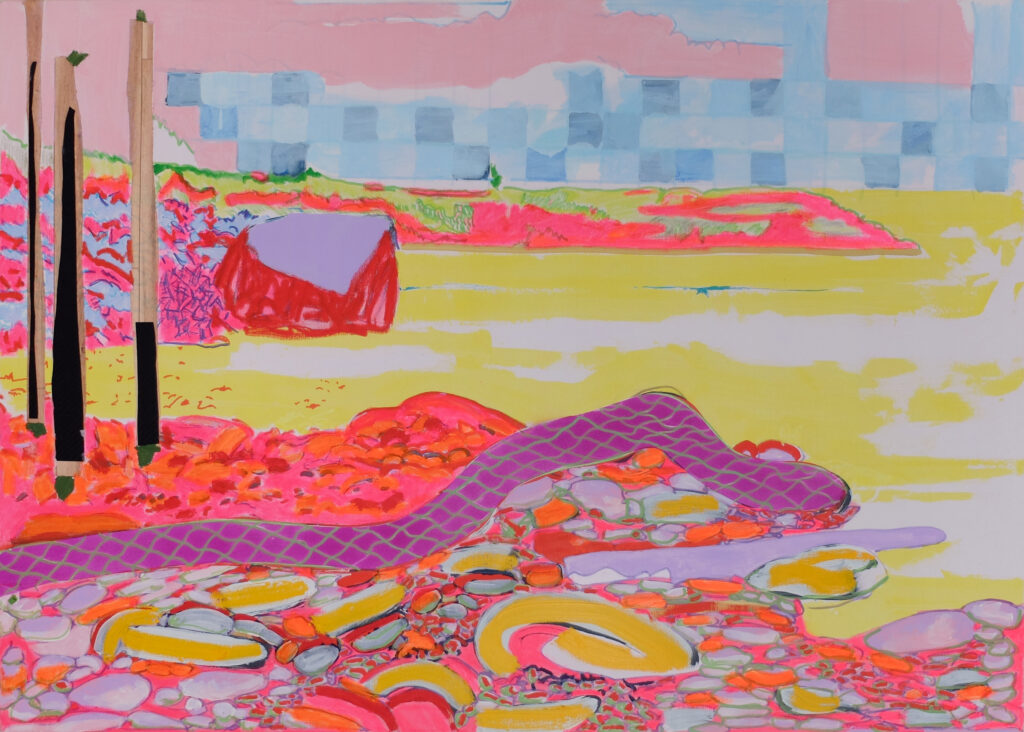Carmella Gray-Cosgrove: When anyone writes, they are writing characters into a tradition
April 2022
Congratulations on winning the 2021 BMO Winterset Award! First, and most importantly, at the Winterset readings you said you were watching Star Trek when you learned you’d been longlisted for the award. What Star Trek, exactly?
I can’t believe I revealed that in public! I’ve been having a really brutal pregnancy and The Next Generationhas been my balm. I just finished all seven seasons and I really think it might be the perfect show. I used to say that about Columbo, but it’s way more true of TNG. My friend Susie thinks it’s the hormones, but, if the sign of a good story is missing the characters when it’s over, TNG must be a great one because I’ve been in mourning my friends on the Enterprise since the last episode. I guess Deep Space Nine is next on the roster.
You’ve lived in Vancouver and Montreal, which provide settings for some of your stories. And you’ve also spoken of leaving these cities behind as homes. How does that feel – especially if you left knowing it was for good – and is St John’s home now?
It’s been a sad reality, especially accepting that Vancouver is no longer home. I spent the first 23 years of my life there and some of my dearest friends are still there. My favourite places in the world are in Vancouver and I would move back in a heartbeat if I could afford it. But I’ve lived in St John’s now for almost 12 years and I love it here and put down roots really quickly. I’ve made close friends and have such a beautiful community. My parents moved here in 2015, then my uncle and his partner moved here in 2018, and my partner’s whole family is here, so it’s hard to imagine leaving in any permanent way. I think the wildest thing has been having a kid here, and another one on the way. I never thought I would be raising Newfoundlanders!

I was really struck by what a nice “reveal” the book’s title is when you encounter it in the text. How did you select this title?
Thank you! That line really felt like a universal sentiment for all the characters in the book when I wrote it. For anyone who hasn’t read the book, the title comes in the text after a reference to Mrs Gereth, a character in The Spoils of Poynton, a Henry James novel I read years ago but that I think about often. I don’t even know if I remember the novel correctly, but in my memory Mrs Gereth is this acquisitive older woman who is absolutely consumed by her possessions. The objects she owns have come to define her completely and when I read the novel, I remember feeling this deep sadness about how ubiquitous this kind of materialism is. How inescapable it is that we all exist to varying degrees in the grips of capitalism, which I think is an undercurrent in all the stories in my collection. I think I also often imagine the characters in classics to be beyond anything I could ever write, but the reality is that when anyone writes, they are writing characters into a tradition and a conversation with all characters who have come before. No matter how small the book. As I wrote these stories, I imagined my characters as no different from anyone I’ve ever met in a book, but they are mostly nowadays, and definitely lonelier.
Prairie Fire reviewed your work saying: “In many of Gray-Cosgrove’s stories, the absurd and extraordinary are rendered mundane before they are reinterpreted back into something meaningful.” Do you think that’s accurate? The review also singled out “The Cull”; can you share the genesis of that story?
That was such a generous and lovely review. I think I really enjoy writing the unimaginable and finding a way to make it real and truthful. You know, in “The Cull”, I had the bones of the story, I knew I wanted to write about the 2010 winter Olympics, I knew I wanted to write about wealth disparity in Vancouver and I had this idea about the nanny and the family she works for as the nexus for telling a bigger story about class as it culminated in 2010 with the displacement of thousands of homeless people in Vancouver to “clean up” the city for the Olympics. But I also knew this wasn’t a new phenomenon in Vancouver — that city is founded on displacement, first of Indigenous peoples, later of Black people in Hogan’s Alley, the ghettoization of the Chinese community in Chinatown, and consistently in more recent years, of homeless or precariously housed people in the Downtown Eastside. Expo ’86 displaced so many people in the DTES [Downtown Eastside], and then the 2010 winter Olympics iterated that process. I lived in that neighbourhood for the first 18 years of my life and while my family was lucky enough to have subsidized housing and a level of security from displacement, watching those dynamics unfold, even as a child and young adult, was intense. Not to mention the displacement and slaughter of coyotes that has been taking place since the beginning of “Vancouver.” The coyote seemed to me like an apt metaphor for human displacement and powerlessness and fear, but also maybe for freedom, and in this particular coyote’s relationship with the protagonist of that story, for a possibility of community care and interconnectedness that persists outside of colonial displacement, capitalism, and gentrification.
Other reviewers have commented on the richness and flexibility of your narrative voices. Is that element present for you from the start? Do you “hear” the stories in your head?
I think a lot about voice, and how the character I’m trying to create would tell their story. Nothing is more boring to me than writing from the same place all the time and I love trying to find a way to tell a story that I have never found before. Practically, I usually start writing a story in first person, especially if I’m having trouble getting into an idea, I find this is really freeing. Some of the stories stay first person, and sometimes I go back and change the whole thing into second or third person in a later draft. I find starting from first really helps me find the voice, though, and for me, finding the voice is the most fun part of making a story.
What’s next for you?
Oh my, who knows! I have a baby due at the end of May and a novel underway. I assembled a bassinet over the weekend and dug out a million baby clothes that need to be washed. Babies and books I guess! And the joy of our long-awaited summer.
Carmella Gray-Cosgrove won the 2021 BMO Winterset Award for her debut short story collection Nowadays and Lonelier (Arsenal Pulp Press, $19.95, 220 pgs)



